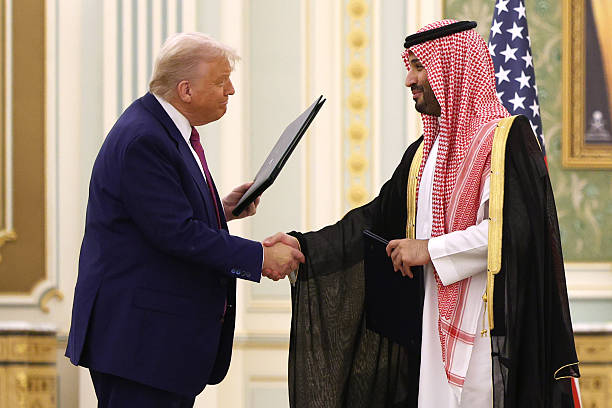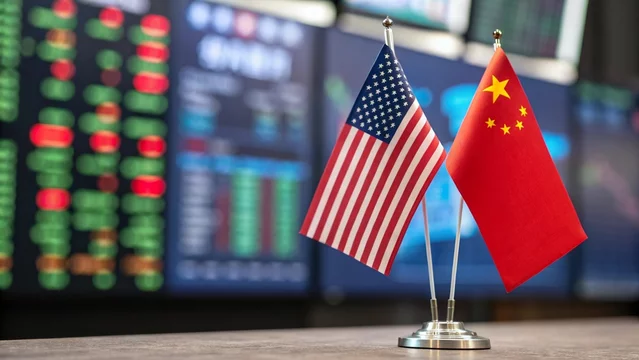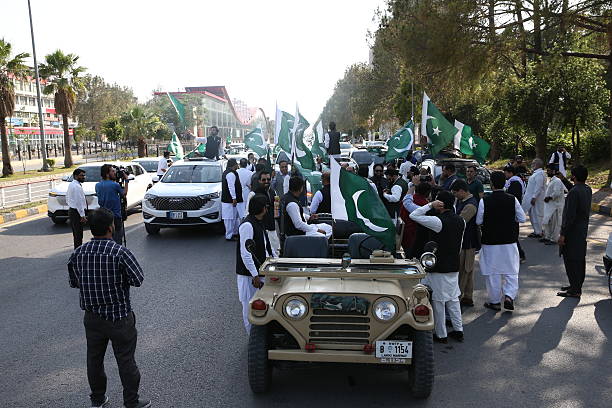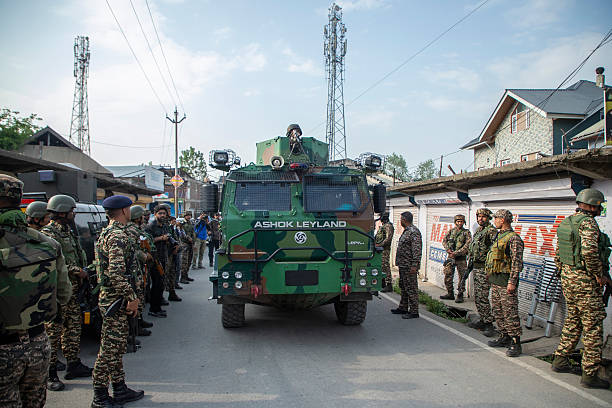Trump’s $142 Billion Defense Deal with Saudi Arabia Draws Scrutiny Over Lack of Details
The Trump administration’s touted \$142 billion defense deal with Saudi Arabia faces scrutiny over vague details and feasibility, raising doubts about its actual scope and execution.
 RIYADH, SAUDI ARABIA - MAY 13: U.S. President Donald J. Trump and Saudi Crown Prince Mohammed bin Salman attend a signing ceremony at the Saudi Royal Court on May 13, 2025, in Riyadh, Saudi Arabia. Trump begins a multi-nation tour of the Gulf region focused on expanding economic ties and reinforcing security cooperation with key U.S. allies. (Photo by Win McNamee/Getty Images)
RIYADH, SAUDI ARABIA - MAY 13: U.S. President Donald J. Trump and Saudi Crown Prince Mohammed bin Salman attend a signing ceremony at the Saudi Royal Court on May 13, 2025, in Riyadh, Saudi Arabia. Trump begins a multi-nation tour of the Gulf region focused on expanding economic ties and reinforcing security cooperation with key U.S. allies. (Photo by Win McNamee/Getty Images)The Trump administration has declared its $142 billion defense deal with Saudi Arabia as “the largest defense sales agreement in history,” but critics are questioning the credibility and specifics of the announcement.
Unveiled during President Donald Trump’s visit to the Middle East, the deal was promoted as wide-ranging, encompassing acquisitions related to the air force, space systems, missile defense, coastal security, and numerous military upgrades. The defense package formed part of a larger $600 billion economic deal between the U.S. and the kingdom.
However, the agreement lacked specifics. No details were provided regarding which defense systems Saudi Arabia would procure, the terms of purchase, or timelines for delivery. The White House, Pentagon, and Saudi embassy did not respond to inquiries, and the U.S. State Department redirected questions to the White House.
Skeptics quickly cast doubt on the figures. Bruce Riedel, a nonresident senior fellow at the Brookings Institution and a former U.S. intelligence and national security official, noted that Saudi Arabia’s annual defense budget is about $78 billion. “It’s great publicity — makes it look like this trip was spectacularly successful,” Riedel said. “But the numbers don’t add up.”
This isn’t the first time such grand deals have been presented without clear follow-through. During Trump’s 2017 visit to Saudi Arabia, he announced a $110 billion arms agreement that largely repackaged previously negotiated deals under the Obama administration and initial offers still requiring congressional approval. According to a State Department fact sheet from January, only $30 billion from the 2017 package has translated into actual foreign military sales.
Amid declining oil prices and increasing domestic spending obligations, Saudi Arabia’s capacity to finance large-scale arms purchases is under pressure. In the first quarter alone, the kingdom's debt rose by approximately $30 billion to reach record levels.
Should contracts eventually materialize from the current announcement, experts anticipate close scrutiny of what’s new versus what was previously agreed upon. The U.S. already holds more than $129 billion in active military sales to Saudi Arabia, according to the State Department.
Beyond the numbers, analysts emphasize the strategic significance of the agreement, reflecting a renewed strength in U.S.-Saudi ties. After years of diplomatic tension, including former President Joe Biden labeling Crown Prince Mohammed bin Salman a “pariah” and suspending arms sales following the killing of journalist Jamal Khashoggi, the optics of this deal signal reassurance and continuity in defense cooperation.
“This is an attempt to send a message of reassurance after several years of uncertainty in the U.S.-Saudi bilateral relationship on defense cooperation,” said Brian Katulis, a senior fellow at the Middle East Institute.
Some tangible outcomes are expected, particularly in missile defense, a sector where the U.S. maintains advanced capabilities and Saudi Arabia has urgent needs, according to Todd Harrison, a senior fellow at the American Enterprise Institute.
Still, concerns persist regarding regional security dynamics. Some analysts warned that massive arms purchases by Saudi Arabia could risk undermining Israel’s qualitative military edge in the Middle East — a commitment upheld by successive U.S. administrations. However, Dana Stroul, research director at the Washington Institute for Near East Policy and former deputy assistant secretary of defense for the Middle East, noted that without specifics, the categories mentioned align with Saudi Arabia’s long-standing modernization goals and do not immediately pose a threat to Israel’s military advantage.
Meanwhile, Saudi Arabia continues to pursue broader strategic goals, including a formal mutual-defense pact with the U.S. and the development of a civil nuclear program. Yet, skepticism about American reliability persists in Riyadh. “They don’t trust the U.S. a hundred percent,” said Yoel Guzansky, head of the Gulf Program at Israel’s Institute for National Security Studies.
As a result, Saudi Arabia is maintaining a strategy of hedging — engaging with Iran diplomatically, while simultaneously courting China and Russia, and pushing for access to advanced U.S. systems like the F-35.







Conversation